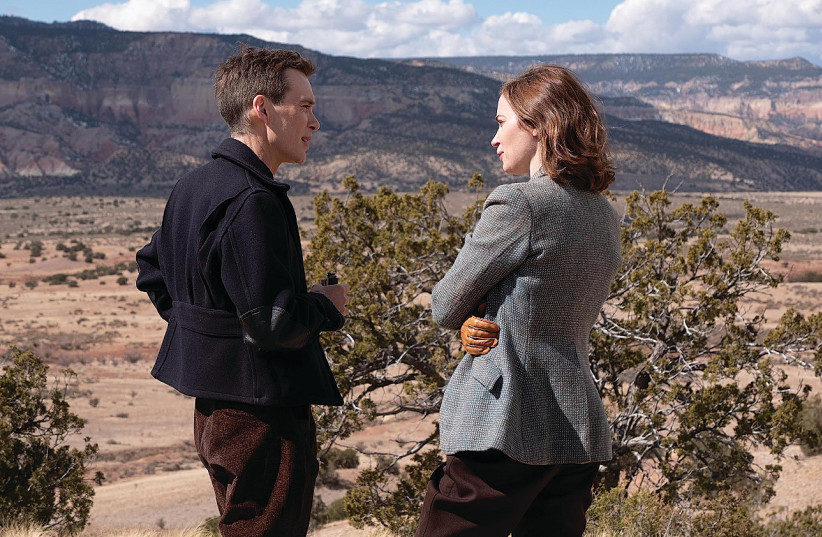'It worked.” Those are the quiet words spoken in Oppenheimer after the Los Alamos trial of the atomic bomb, the whispery quality of the remark in dramatic contrast to one of the most momentous events of the 20th century.
The entire movie turns on similar nuances.
J. Robert Oppenheimer (Cillian Murphy) is called a hero because the invention he spearheaded ended World War II. But he’s also described, by the man who hired him for the project (Matt Damon as Gen. Leslie Groves), as “a dilettante, a womanizer, a suspected communist, unstable, theatrical, romantic.”
He worked hard to finish the bomb but mourned the results. He loved his wife but cheated on her repeatedly. He refused to betray a friend, knowing he was betraying his family instead. Oppenheimer gives its leads so many failings that it’s hard to identify his tragic flaw. Arrogance, maybe?
A serious, three-hour biopic with very few laughs and only awful explosions, Oppenheimer feels more like a fall/winter movie than a July one, except for this: On a craft level, Oppenheimer is thrilling in the same ways summer hits such as Jaws or writer/director Christopher Nolan’s own The Dark Knight are.

The movie is structured like a puzzle and its frenzied, non-chronological arrangement, with contrasting visuals to approximate different time frames and character viewpoints, may remind you of Oliver Stone’s JFK. Nolan’s film is more historically verifiable but it, too, is about trying to separate truth from fact when power players in the government try to sell the public lies.
Gary Oldman is on board as a nasty president Harry S. Truman but the liar-in-chief is Robert Downey Jr. as ruthless former Oppenheimer associate Lewis Strauss, who throws Oppy under the bus when he believes it will help him be confirmed as Dwight D. Eisenhower’s secretary of commerce.
Oppenheimer’s take on the action is in color but scenes from Strauss’s viewpoint are presented in black and white – even though they’re some of the most recent events in the movie – and their documentary-like appearance reminds us: Don’t believe what you see.
Shifting from black and white to color is just one trick Nolan deploys. The use of sound in Oppenheimer is some of the boldest and most effective I can recall, especially when the bomb explodes (to complete silence) and, later, when a regretful Oppenheimer (Murphy’s is a towering, unnervingly still performance) hears bombs everywhere he goes.
The Los Alamos, New Mexico, scenes have a faded, wide-screen look that recalls mid-century color epics such as Giant. Those scenes are even a little blurry, as if to suggest the passage of time, but Nolan and cinematographer Hoyte van Hoytema crisp the images up for events that occur later, a visual nod that the world would never look the same after Oppenheimer.
Smart casting choices
Nolan has cast the movie beautifully, including a tiny role that makes a big impact because of the actor he chose – and, especially, including Emily Blunt as Oppenheimer’s brilliant wife, Kitty. Hers could be one of those thankless, you-were-so-busy-saving-the-world-that-my-pot-roast-burned roles (see Sissy Spacek in JFK) but Blunt’s career-redefining performance hints at what Kitty contributed to her husband’s success, and what it cost her.
Oppenheimer is a movie with power, texture, and grace. By the end, we begin to understand its subject, even if we remain baffled by a genius who somehow divorced himself from the damage his theoretical project would do.
Maybe Strauss sums him up best: “How could this man who saw so much be so blind?”
